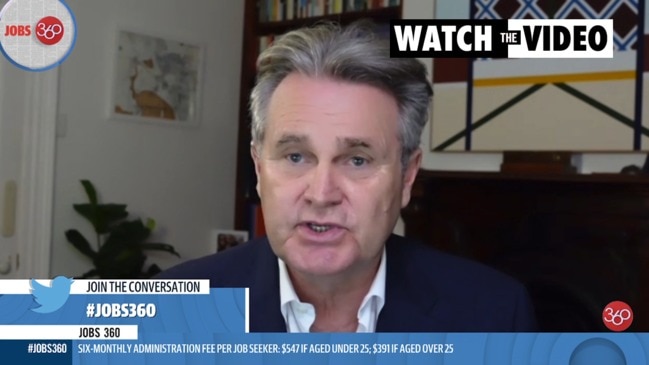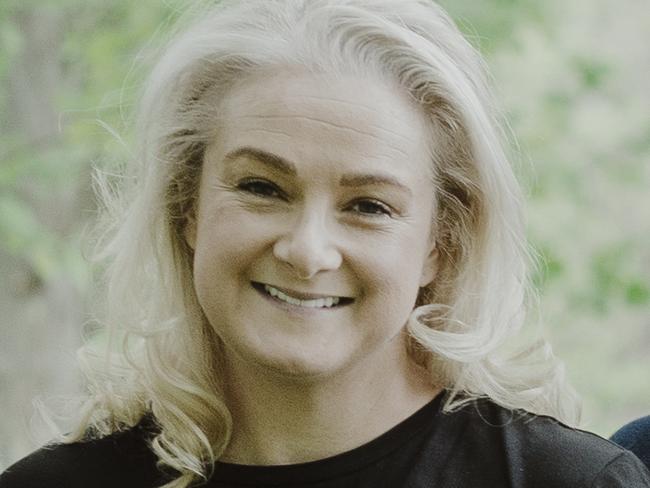The workers and skills in highest demand in Australia right now
Australia’s job market has mellowed out after an ultra-competitive year and over the coming months, these roles are likely to be in-demand.

SmartDaily
Don't miss out on the headlines from SmartDaily. Followed categories will be added to My News.
Jobseekers have been delivered an early Christmas present, with the Australian jobs market mellowing out after an ultra-competitive year.
Exclusive LinkedIn data reveals the average job was attracting double the number of applicants in May after COVID-19 forced many businesses to shut down, but levels have now returned to where they were before the pandemic.
LinkedIn Asia Pacific economist Pei Ying Chua says the jobs market is recovering as the country gains control over virus infection rates.
“The applicant-to-job ratio is a year-on-year measurement, so even though hiring is naturally slightly lower in December, the impact of COVID-19 hasn’t increased competition any more than it was at this time last year,” she says.
“This is a marked improvement from the middle of the year, during lockdown, when competition had doubled year-on year.
“Our research has found that as (COVID-19) cases reduce and social distancing measures are relaxed, business can once again resume a new normal of work and thus, demand for staff increases.
“If Australia can continue to improve its hiring rate, there is room for cautious optimism in future.”

The most-posted jobs on LinkedIn in December have been for drivers (overall median salary of $65,000), registered nurses ($74,000), teachers ($85,000), healthcare support associates ($62,400), store managers ($60,000), physical therapists ($71,000), project managers ($118,000), software engineers ($85,000), business development managers ($90,000) and electricians ($87,800).
Chua says much of the hiring activity is at least partly in response to COVID-19.
“Due to the ongoing impact of the pandemic, we expect healthcare will continue to be a top hiring industry into the start of next year,” she says.
“As more businesses look to get their plans back on track, we expect project managers and business development managers to continue to be in high demand as local businesses adapt and update their processes and workflows in response to the new normal.
“Other important frontline roles include the transport and delivery space, and we see that transport and logistics as an industry has been hiring up to 100 per cent more year on year in recent months, so it’s no surprise ‘driver’ is among the key jobs being posted.
“Again, this will likely continue into the start of next year.”

Public transport operator Transdev intends to create up to 300 new trainee jobs throughout 2021, with up to 100 to commence by the end of January.
They will be across Sydney, Melbourne, Brisbane and Perth and span buses, light rail and ferries.
Pru Rayner, 39, started her career as a Transdev bus driver in January, after making a career change out of social work.
“My career has focused on my interest in people and the community, and as a bus driver, you get to meet a lot of interesting people,” the Brighton, Victoria resident says.
“I’m quite a smiley and talkative person and it just takes one or two comments from me to break the ice, before a silent bus is filled with lively conversation.”
She says driver roles suit people who enjoy customer service.
“You also need to be comfortable with responsibility and able to work autonomously,” she says.
The LinkedIn data also reveals the skills in highest demand from employers right now across the workforce.

The most commonly listed skills in job ads are analytical skills, food and beverage, engineering, construction, finance, consulting, nursing, customer relationship management (CSM), cloud computing and customer experience.
Chua says technology-driven skills, also known as disruptive digital skills, have been in demand for many years.
“A recent LinkedIn study found that while COVID-19 caused a dip for most industries, candidates with these skills fared better before and during the pandemic, and are continuing to do so,” she says.
“Analysis, finance, consulting and customer relationship management are important corporate skills that span a huge range of roles.
“Brushing up on budgeting, advisory work and how to synthesise data will help jobseekers excel in a range of roles in different industries and levels.
“When it comes to the likes of construction and nursing as most sought-after skills, these industries are simply booming, so there’s a lot more demand for such specialised skillsets.”

HOW TO LEVERAGE YOUR STRENGTHS TO GET THE JOB
1. KNOW WHAT THEY ARE
You can ask friends, family and co-workers, “Give me five words you would use to describe me when I am showing up at my best”.
You can take the VIA Character Strengths Survey, which is based on global research.
You can download the free Hodie app, which gives a curated experience to work out what your strengths are.
If you self-assess, you have bias, you have blind spots and you might think are good at things you are not good at.
2. KNOW HOW THEY ADD VALUE
Once you know your top five strengths, think through examples.
Ask yourself, “What have I done recently where I have shown (this strength) and what value did that add?”.
3. CHOOSE JOBS THAT MATCH STRENGTHS
The more you can align what you do with what you are good at, what you value and your purpose, the more productive you will be and the more you will stand out.
Then you get the performance accolades and promotions in time.
You will be more engaged and less stressed and have a greater sense of wellbeing and co-workers will see you in a positive light – not stressed, grumpy, snappy.
4. ADD THEM TO YOUR RESUME
List the top five strengths and a sentence about how they each show up.
For example, if you are energetic: “I love to energise the groups I work with to get the best outcome”.
Then list your top technical skills – for example, analysis, problem soling.
Put them side-by-side to give the employer an immediate view of who you are.
Source: MaxMe founder and Hodie app creator Renata Sguario
Originally published as The workers and skills in highest demand in Australia right now




